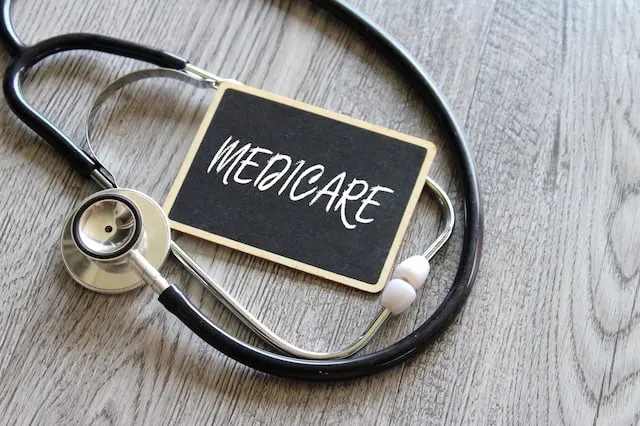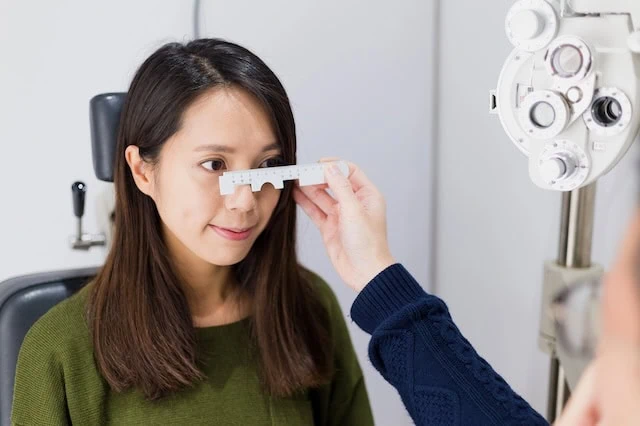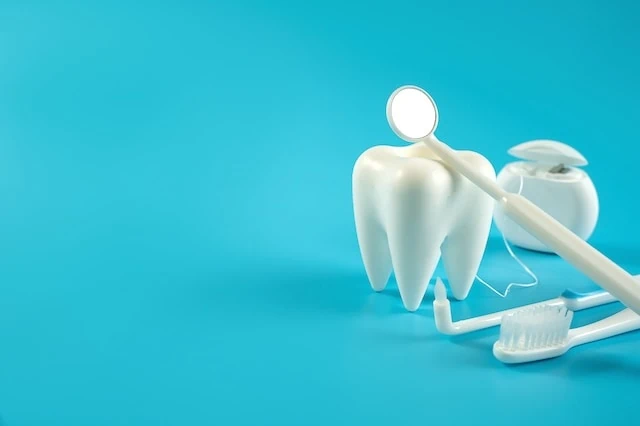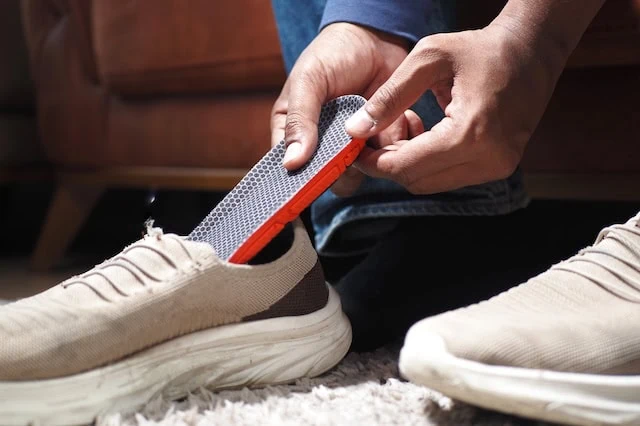Some 67 million Americans, including older adults and people with certain disabilities and illnesses, receive health care coverage for a wide range of medical services and items through Medicare.
Of those, roughly half get their coverage through “Original Medicare,” which simply refers to the two primary, government-run parts of Medicare: Parts A and B. (The other half have Medicare Advantage—a private-market alternative that provides coverage similar to Original Medicare.)
However, while Original Medicare can save you a substantial amount on your medical costs, it doesn’t cover everything. You’ll need other programs to cover some of your health care wants and needs … and in a few cases, there is no coverage and you’ll simply have to pay completely out of pocket.
Today, I’m going to help you better understand what Original Medicare doesn’t cover. By knowing what doesn’t fall under the umbrella of Parts A and B, you’ll be better armed to decide whether to buy supplemental insurance and/or save for additional potential out-of-pocket expenses.
Featured Financial Products
What Original Medicare Covers

Before we dive into what Original Medicare won’t pay for, let’s briefly review what it does cover:
- Medicare Part A pays for the most critical and urgent aspects of health care, including (but not limited to) hospice centers, inpatient hospitals, inpatient rehabilitation centers/clinics, skilled nursing facilities, and select health care needs delivered in-home.
- Medicare Part B takes care of much of what Part A doesn’t—doctor’s visits, preventative services, ambulance rides, some home health services, and durable medical equipment.
Original Medicare Won’t Cover These Things

Unfortunately, Original Medicare won’t foot the bill for the following items and services. There are occasional exceptions, which are noted, but for the most part you’ll need to find another way to pay for these health expenses.
When in doubt, contact a Medicare representative to determine whether an item or service is covered.
1. Routine Eye Exams, Glasses/Contacts

Original Medicare typically won’t cover eye exams, nor prescription glasses or contact lenses. But there are a few eye-related matters that the program will cover.
For one, you will get an initial one-time simple vision test in your “Welcome to Medicare” preventative-care visit.
Additionally, if you have or are at risk for specific eye conditions, Original Medicare might help pay for certain tests. For example, Part B helps cover an annual diabetic eye exam for people with diabetes and diabetic retinopathy. Or if you have cataract surgery and an intraocular lens implanted, Part B will help pay for one set of corrective lenses. (You’ll pay 20% of the approved cost, after meeting your deductible.)
People who want vision coverage in retirement can either opt for certain Medicare Advantage plans instead, or augment Original Medicare by purchasing an individual vision plan from a private insurer. Outside programs can help, too. For instance, New Eyes provides low-income individuals with vouchers for prescription glasses, while EyeCare America provides eye exams at no out-of-pocket cost.
Related: Don’t Overpay for Medicare: How to Avoid the Late Enrollment Penalty
2. Most Dental Care

Original Medicare doesn’t cover most dental care, such as cleanings, fillings, tooth extractions, or root canals. It also won’t cover dentures.
However, Original Medicare will cover some dental services if they are deemed medically necessary or closely related to certain services, such as:
- Organ transplants
- Heart valve repair of replacements
- Head or neck cancer-related treatments
Even if your Original Medicare does cover medically necessary dental work, it usually won’t pay for any follow-up dental care after your primary health condition has been treated. This aspect has slightly improved as of late, though. Starting in 2024, Medicare began covering dental treatments to fix complications after chemotherapy, radiation, and/or surgery for head and neck cancer. It will also now pay for oral examinations before chemotherapy, chimeric antigen receptor T-cell therapy, and, when used for cancer treatment, the administration of high-dose bone modifying agents.
Like with vision coverage, those wanting dental coverage may get it by participating in Medicare Advantage plans, or by augmenting Original Medicare with a private-provider dental plan. Alternatively, the Dental Lifeline Network can help you find donated dental care, and the American Dental Association can help you find local low-cost providers.
Related: Retired But Too Young for Medicare? Health Insurance for Early Retirees
3. Hearing Aids

Another part of the body that Original Medicare coverage tends to neglect is your ears.
The good news? If you’ve been experiencing hearing loss or balance problems for at least 12 months, your health insurance will cover a visit to an audiologist, even without a physician referral. Then, eligible patients can have a covered audiologist visit once every 12 months.
The bad news? If you end up needing hearing aids and exams for fitting them—no matter the reason—Original Medicare won’t pay for those costs.
Like with dental and vision coverage, certain Medicare Advantage plans might be able to help you. You might also be able to find financial assistance and other resources for hearing tests and hearing aids from programs such as Help America Hear and the Hearing Aid Project.
Also worth noting: In 2022, the FDA established a new category of over-the-counter (OTC) hearing aids designed to treat mild to moderate hearing loss. These aids can be purchased without an exam or prescription, and they tend to be far cheaper than prescription hearing aids.
Related: Here’s How You Can Lose Medicare [And How You Won’t]
4. Prescription Drugs

Nearly 90% of older Americans take prescription drugs, yet neither Medicare Part A nor Part B cover these medicines.
That’s OK—because this is a well-known coverage hole with two well-known solutions:
- Enrolling in Medicare Part D (prescription drug coverage) to augment Original Medicare.
- Enrolling in a Medicare Advantage plan that includes prescription drug coverage.
According to health policy nonprofit KFF, around 53 million Medicare beneficiaries were enrolled in either standalone Part D or Medicare Advantage-Part D (MA-PD) plans.
Note: You cannot enroll in both Medicare Parts C and D. If you want Medicare Advantage and prescription drug coverage, you must find a Part C plan that includes said coverage.
Related: 5 Costly 401(k) Rollover Mistakes You Must Avoid
Featured Financial Products
5. Most Immunizations

Most immunizations aren’t covered under Original Medicare. Medicare Part A doesn’t cover any vaccinations, but Medicare Part B covers some. The most popular vaccines that Part B covers are as follows:
- Flu
- COVID-19
- Hepatitis B (if at high or intermediate risk)
- Pneumonia (pneumococcal)
It also covers vaccines that treat exposure to disease or an injury, such as a tetanus shot recommended by a health professional after a wound.
What if you just want a tetanus booster? That would be covered by Part D, if you have it, but not Original Medicare.
Part D covers most vaccinations and most Medicare Advantage plans include Part D coverage. However, even if you have both Part B and Part D coverage, you’re still likely to pay out-of-pocket costs for some immunizations, such as suggested vaccines for traveling to certain countries.
Related: How to Negotiate Medical Bills in Collections [13 Steps to Follow]
6. Annual Physical Exams

This one might surprise you more than others given that Part B covers preventative services. But Original Medicare does not cover annual physicals.
Original Medicare covers two primary types of preventative visit:
- The original “Welcome to Medicare” visit
- Annual wellness visits (AWVs)
-
The former is a somewhat more involved version of the latter—but both are largely focused on health planning, such as providing advice, making lists of medical providers and prescription drugs, and drawing up a schedule for preventative screenings. While your doctor will take a few routine measurements (height, weight, blood pressure) like they would in a physical exam, they won’t, say, listen to your breathing, check your head and neck, check your reflexes, or take fluids for labs. They will, however, take a cognitive assessment.
You can still get physical exams as a senior. But you’ll either have to get a Medicare Advantage program that covers physicals, or pay for part or all of each physical exam (depending on what is performed).
Related: 13 Best Long-Term Stocks to Buy and Hold Forever
7. Custodial Care/Long-Term Care

Typically, Original Medicare doesn’t pay for stays in assisted living or long-term care facilities.
Part A may cover care given by a skilled nursing facility, though there are conditions and time limits. But generally speaking, custodial care—which is non-medical care for people with disabilities or chronic illnesses who need help with everyday tasks, such as bathing or walking—is out of bounds for Original Medicare. Given that most nursing home care falls under that umbrella, Original Medicare also rarely covers nursing home stays.
Fortunately, Original Medicare will pay for hospice if you meet the following requirements:
- A doctor certifies your life expectancy is six months or less.
- You agree to receive palliative care, rather than trying to recover.
- You’ve signed a consent form to receive hospice and not other Medicare-covered treatments for your terminal conditions.
A financial planner or insurance agent can help you find long-term care insurance, however.
As long-term care can be costly and not covered by Original Medicare, it’s an important expense to consider when you’re budgeting for health care expenses in retirement.
Related: RMDs Too High? 6 Ways to Reduce Them at Age 73
8. Massage Therapy + Chiropractic Services

Do you have chronic pain that is eased through massages? Unfortunately, you have to foot 100% of those massage bills yourself. Original Medicare won’t pay anything toward massage therapy. Why? The Centers for Medicare & Medicaid Services (CMS) deems massage therapy as an “alternative and complementary medicine.”
That said, Medicare Part B does pay for medically necessary outpatient physical therapy, which may include massage.
Similarly, Original Medicare doesn’t cover chiropractic services or tests, with a single exception. A vertebral subluxation is when you have contact between your spinal joints, but they don’t move properly. If you have a vertebral subluxation, Part B will pay for a chiropractor to correct it through manual manipulation. After meeting your deductible, you would still be responsible for 20% of the Medicare-approved amount.
Again, some Medicare Advantage plans may cover massage therapy and/or chiropractic services that fall outside the vertebral subluxation umbrella.
Related: What Are the Average Retirement Savings By Age?
9. Medical Services Outside the United States

Original Medicare is designed to provide health care services within the 50 U.S. states, District of Columbia, and the U.S. territories of American Samoa, Guam, the Northern Mariana Islands, Puerto Rico, and the U.S. Virgin Islands. If you’re abroad and get medical work done anywhere else, however, Medicare typically won’t pay for those services. Thus, if you’re on vacation, it’s generally recommended to get travel insurance.
There are a few exceptions, though, where Original Medicare may cover some medical costs, such as the following situations:
- You’re within the U.S. or one of its territories, or traveling between Alaska and another state, and need medical care, but the closest hospital is in another country.
- You’re on a ship within six hours of a U.S. port and medical support.
Even then, that coverage may be limited compared to what you would be afforded under normal circumstances.
Related: HSA Contribution Limits [2024 + 2025]
10. Most Cosmetic Surgery

On rare occasions, Original Medicare might cover surgeries and other services that could be categorized as cosmetic. For example, if you had a mastectomy because of breast cancer, Medicare will pay for breast reconstruction. It will also cover situations where you need cosmetic surgery after an accidental injury or if surgery is necessary to improve the function of a body malformation.
However, if you want cosmetic surgery for purely vanity reasons unconnected to health issues, you’re out of luck. Patients pay every dollar for non-covered cosmetic services.
Sometimes, it can be difficult to differentiate whether cosmetic surgery is done for aesthetics or medical reasons. Consider rhinoplasty, which is often nicknamed a “nose job.” Some people get rhinoplasty to change their nose shape to something they consider better looking. Others might get rhinoplasty to open blocked nasal passages, however.
When it comes to who’s writing the check, this intent matters. For this reason, Original Medicare requires prior authorization before a person has hospital outpatient services that are sometimes considered cosmetic.
Related: How to Start a Retirement Plan [Build Your Retirement Savings]
11. Concierge Care Membership Fees

Concierge care goes by many names: concierge medicine, platinum practice, retainer-based medicine, direct care, or boutique medicine. No matter what name it goes by, concierge care works similarly to how country clubs function. Patients pay a membership fee to be accepted into a doctor(s)’ practice. That fee may entitle members to amenities or services Medicare doesn’t cover.
Concierge care fees are paid for completely by a patient—Original Medicare won’t pay for any portion. Offering concierge care doesn’t exempt doctors from Medicare guidelines.
Medicare doctors are allowed to charge you for services and items Medicare won’t cover. However, they cannot charge you extra for Medicare-covered services. If there is a cost Medicare often covers, but won’t in your circumstance, the health care professional must provide you with a written notice listing the services and why Medicare won’t cover them.
Within the Medicare realm, the term “accepting assignment” means the patient gets the lowest cost if a health care provider accepts the Medicare-approved amount as the entire payment for a covered service. When providers accept assignment, it’s for all Original Medicare-covered services.
For concierge care, doctors who don’t accept assignment are allowed to charge patients more than the Medicare-approved amount for Medicare-covered services. (But they’re limited to 15% more, referred to as the “limiting charge.”)
Related: 13 Baby Boomer Retirement Statistics You Should Know
12. Certain Foot Care Services + Devices

Foot care is important for your overall health and mobility, so you should take care of your feet. However, Medicare usually doesn’t cover routine foot care services, such as the following:
- Clipping or debriding (removing damaged or infected tissue from the nail bed)
- Corn or callus removal
- Washing feet or other hygienic practices
Those are all tasks you’ll need to do yourself … or treat yourself to a spa day to accomplish. Original Medicare also won’t treat flat foot or pay for orthopedic shoes or other foot support devices.
Of course, there are exceptions. In some situations, Medicare may cover the following:
- Therapeutic shoes supplied to diabetics
- Orthopedic shoes integral to a leg brace
- Necessary services that are an integral part of a covered service
- Treatment of foot warts
- Treatment of mycotic nails (clinical evidence required)
- Presence of certain metabolic, neurologic, and peripheral systemic diseases
Note that for some of the exceptions, you might have to be under the active care of a doctor who documented a condition.
Related: HSA vs. HRA: How Different Are They?
How Can I Pay For Health Care Costs Medicare Doesn’t Cover?

The two primary ways to cover most of the health care expenses above are:
- Use a Medicare Advantage that provides the desired coverage
- Purchase supplementary insurance, whether that’s Medicare Part D for prescription drugs, or private vision, dental, long-term care and other insurance plans.
On top of that, you might be able to find low- or no-cost services through organizations like the ones listed throughout this article.
No matter how good your coverage, you’re likely to have out-of-pocket costs. One excellent way to pay for those medical costs in retirement is with health savings account (HSA) funds. You can withdraw money from HSAs tax- and penalty-free when you use those funds for qualified medical medical expenses.
Whether or not you have an HSA, it’s important to factor health care costs into your retirement budget. And if your retirement budget looks blurry, consider working with a financial advisor to put a more concrete plan in place.
Featured Financial Products
Related:






![SEP IRA Contribution Limits [2025 + 2026] 33 SEP IRA contribution limits](https://youngandtheinvested.com/wp-content/uploads/SEP-IRA-contribution-limits-600x403.webp)

